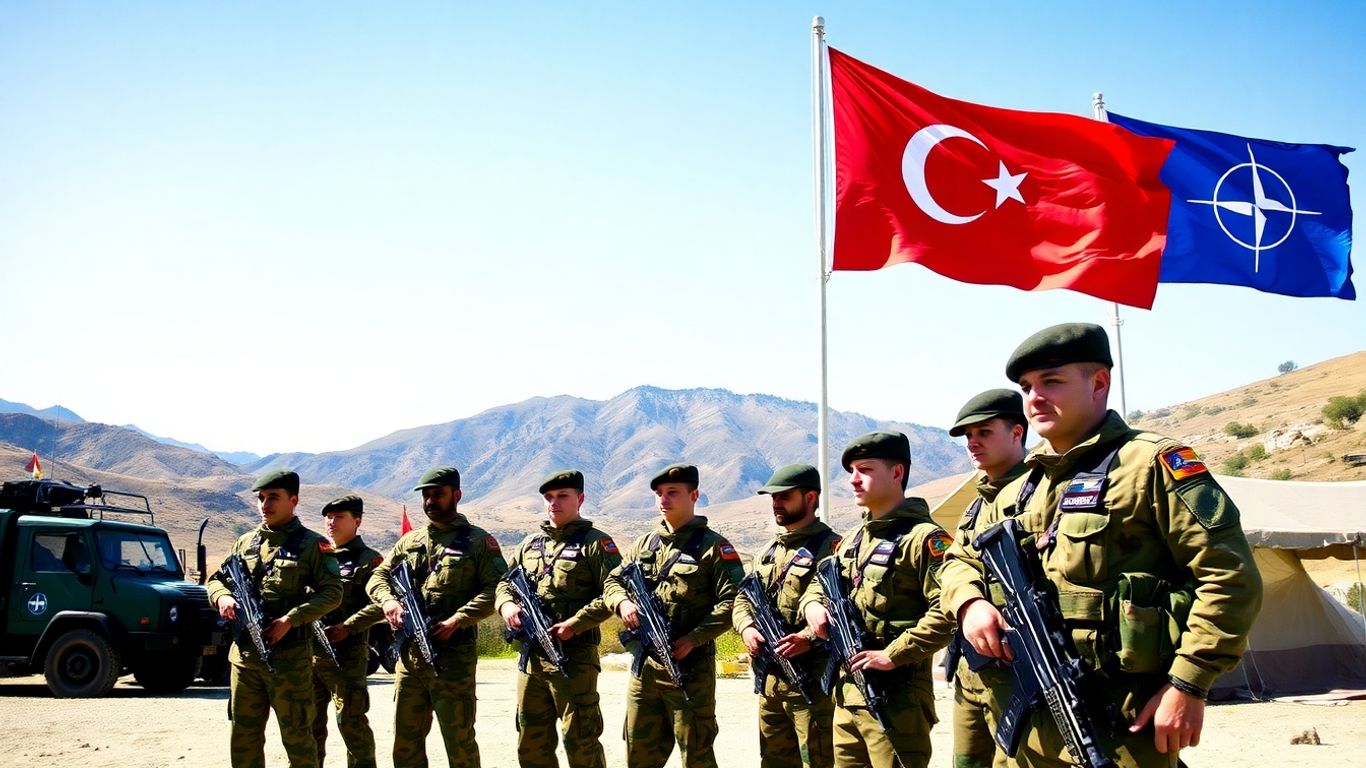Türkiye has officially assumed command of NATO’s Kosovo Force (KFOR) from Italy in a ceremonial handover in Pristina. This marks the second time Ankara has led the vital peacekeeping mission since its inception in 1999, as ongoing regional tensions have kept security a top priority for NATO and the Western Balkans.
Key Takeaways
- Türkiye began its new one-year command of KFOR on October 3, 2025.
- Turkish Maj. Gen. Özkan Ulutaş leads KFOR amidst heightened security concerns in Kosovo.
- Over 4,500 troops from 33 NATO and partner countries currently serve in KFOR.
- The mission is to maintain peace, ensure freedom of movement, and foster dialogue in the region.
NATO’s Enduring Role in Kosovo
NATO deployed KFOR in June 1999 under mandate from the UN Security Council to stabilize Kosovo following the Balkan conflict. The mission initially included 50,000 troops, gradually reducing to its current strength in response to improvements on the ground. Today, KFOR consists of a flexible 4,500-strong commitment from more than 30 allied and partner nations.
KFOR’s responsibilities encompass guaranteeing public safety, demilitarizing former armed groups, assisting humanitarian initiatives, and supporting the development of Kosovo’s civilian institutions. In the face of renewed hostilities and rising tensions in recent years, NATO has temporarily increased troop deployments for rapid response capability.
Significance of Turkish Leadership
Türkiye’s military has been continuously involved in KFOR since its earliest days. Maj. Gen. Özkan Ulutaş, now taking the command for the second time, emphasized that the priority is ensuring safety, stability, and open dialogue among Kosovo’s diverse communities.
The ceremony featured high-profile attendees, including Kosovo’s President Vjosa Osmani and Prime Minister Albin Kurti. President Osmani praised KFOR as vital for peace, reiterating Kosovo’s aspiration for NATO membership and the need for steadfast allied partnership.
Security Environment and Ongoing Challenges
Despite improvements since 1999, Kosovo still faces periodic tensions between ethnic communities. Episodes of unrest in 2023 prompted NATO to reinforce KFOR, highlighting persistent unease in northern Kosovo. KFOR, operating impartially, supports both Kosovo and the broader international efforts—such as those led by the European Union and United Nations—to maintain order and encourage dialogue.
KFOR acts as the third responder to security crises, after local police and the EU Rule of Law Mission, lending a safety net and acting as a critical deterrent. The force’s adaptability is reinforced by temporary rotational units, including Turkish Operational Reserve Battalions, which bolster operational flexibility.
Outlook for Regional Stability
Türkiye’s leadership underscores both continuity and renewed commitment to KFOR’s mandate of peace enforcement and civil support. As Kosovo continues reforms and pursues closer Euro-Atlantic integration, NATO’s presence—now under Turkish command—is positioned as a stabilizing influence geared toward a peaceful, multi-ethnic, and democratic future for the region.
Sources
- Türkiye assumes NATO command in Kosovo for second time since 1999, Türkiye Today.
- Topic: Le rôle de l’OTAN au Kosovo, NATO – Homepage.






